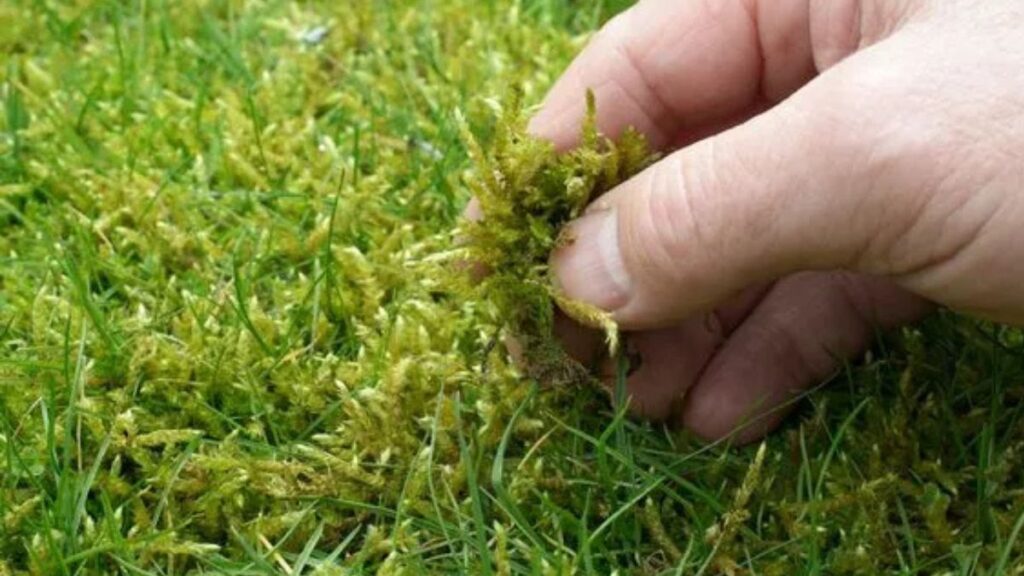Introduction to Moss Killer and Why it’s Important
Moss can be a beautiful part of nature, but when it invades your lawn or garden, it quickly becomes a nuisance. As homeowners seek ways to reclaim their green spaces, the market is flooded with solutions promising quick results. But how do you know what truly works? With so many products and home remedies out there, it’s easy to fall for common myths about moss killers. This blog will help you sift through the noise and separate fact from fiction. Let’s dive into the world of moss control and discover what really gets rid of that pesky greenery—and what doesn’t!
Common Myths About Moss Killers
Moss killers are often surrounded by misinformation. Many people believe that certain household items can effectively eliminate moss from their gardens or lawns.
One common myth is that bleach works wonders against moss. While it may kill the surface layer, it does not address the roots, leading to quick regrowth.
Another misconception is that vinegar acts as a fast-acting solution. Though its acidity might damage moss temporarily, it won’t permanently eradicate it from your yard.
Salt is also frequently touted as a universal remedy. However, using salt indiscriminately can harm surrounding plants and soil health while only providing a short-term fix for moss issues.
These myths highlight the need for evidence-based approaches when dealing with this stubborn plant. Understanding what really works can save time and effort in maintaining a healthy lawn.
Myth #1: Bleach is an effective moss killer
Many people swear by bleach as a quick fix for moss. They believe that pouring it on the affected areas will kill off this pesky plant in no time.
However, using bleach can lead to more harm than good. While it may eliminate surface-level moss, it doesn’t address the root of the problem. The underlying conditions that allow moss to thrive remain unchanged.
Moreover, bleach is harsh and can damage surrounding plants and soil health. It leaches into the ground, disrupting local ecosystems.
Instead of solving your moss issue effectively, you might create new problems in your garden or yard. It’s essential to understand that not all solutions are beneficial for long-term maintenance and health of your landscape.
Myth #2: Vinegar kills moss quickly
Many homeowners turn to vinegar as a natural solution for moss. It’s accessible and boasts acetic acid, which some assume can swiftly eliminate unwanted growth.
However, the reality is more complicated. While vinegar may have some effect on surface-level moss, it doesn’t penetrate deeply enough to eradicate roots. This means that while you might see immediate results, the moss is likely to return soon after treatment.
Additionally, using vinegar excessively can harm surrounding plants and soil health. Its high acidity impacts not only the targeted areas but also beneficial microorganisms in your garden.
So, while vinegar may seem like an easy fix in theory, its effectiveness as a quick moss killer falls short of expectations. It’s essential to consider alternative methods that offer lasting solutions instead.
Myth #3: Salt will eradicate all moss from your lawn
Many homeowners believe that salt is a miracle solution for moss removal. They envision tossing it around the yard and watching the green invaders vanish.
However, this approach can backfire. Salt can damage your soil, harming beneficial microorganisms essential for healthy grass growth. Instead of promoting lush lawns, you may end up with patches of dead earth.
Moreover, just like vinegar and bleach, salt might not target roots effectively. The surface-level treatment often leaves behind resilient spores ready to sprout again in no time.
So while sprinkling salt seems easy and tempting on paper, it’s not the best choice for long-term moss control or lawn health. Always consider alternatives that won’t jeopardize your greenery’s vitality when tackling these pesky plants.
The Truth about Effective Moss Killers
When it comes to effective moss killers, understanding the science behind them is crucial. Many products claim quick results, but not all deliver.
The most reliable solutions often contain specific active ingredients like potassium salts or iron-based compounds. These formulations target moss directly and can effectively eliminate stubborn growth without harming your lawn.
Chemical options may provide immediate results, yet they require careful application. Overuse can damage surrounding plants and soil health.
For those who prefer a gentler touch, consider environmentally friendly alternatives that incorporate natural elements such as baking soda or dish soap mixed with water. These methods take longer but are safer for pets and children.
Regardless of your choice, consistent application is key. Regular monitoring will help you keep moss at bay long-term while maintaining a healthy yard ecosystem.
Natural and Safe Alternatives to Chemical Moss Killers
If you’re looking for effective ways to combat moss without resorting to harsh chemicals, several natural alternatives can do the trick. One popular option is using baking soda. This common household item disrupts the growth of moss while being safe for your plants and pets.
Another great choice is a mixture of water and dish soap. The soap clings to the moss, disrupting its structure and making it easier to remove manually or wash away with water.
For those who prefer a more botanical approach, consider using essential oils like tea tree oil or lemon oil. Their antifungal properties make them effective at tackling moss growth naturally.
Applying diluted hydrogen peroxide can also work wonders. It targets existing moss while breaking down into harmless substances after use—safe for surrounding greenery! These alternatives show that you don’t have to compromise on safety when dealing with pesky moss issues.
Tips for Preventing Moss Growth in the Future
To keep moss at bay, proper lawn care is essential. Start by ensuring your grass gets enough sunlight. Trim overhanging branches and remove debris that can create shade.
Next, focus on soil health. Aerating the soil improves drainage and allows nutrients to reach the roots more effectively. Regularly testing your soil pH can help you maintain optimal conditions for grass growth.
Watering practices play a crucial role too. Water deeply but infrequently, allowing the top layer of soil to dry out between watering sessions. This discourages moisture-loving moss from taking hold.
Consider overseeding with hardy grass varieties that thrive in your climate. A thick lawn competes better with unwanted invaders like moss, keeping your yard vibrant and healthy without excessive effort.
Conclusion
Moss can be a persistent problem in lawns and gardens, often thriving in damp and shady conditions. Understanding what truly works as a moss killer is crucial for maintaining a healthy outdoor space.
Many popular methods are surrounded by myths that can lead to wasted time and resources. It’s essential to differentiate between effective treatments and those that simply won’t deliver on their promises.
Bleach, vinegar, and salt have long been touted as home remedies for killing moss but fail to address the issue comprehensively or sustainably. Instead of relying on these quick-fix solutions, knowing the truth about effective moss killers helps you make informed choices.
There are natural alternatives available that not only tackle existing moss but do so without harming your lawn or the environment. Safe options like baking soda or even commercial products designed specifically for this purpose can yield better results with less risk.
Additionally, preventive measures play an integral role in managing moss growth over time. Regular maintenance practices such as proper lawn care—like aeration, ensuring adequate sunlight exposure, and improving drainage—can significantly reduce the chances of future infestations.
By understanding what really works against moss while also exploring safe alternatives and prevention strategies, you’ll be well-equipped to reclaim your green spaces effectively. Embracing knowledge will help ensure your lawn remains vibrant year-round while keeping pesky moss at bay.






